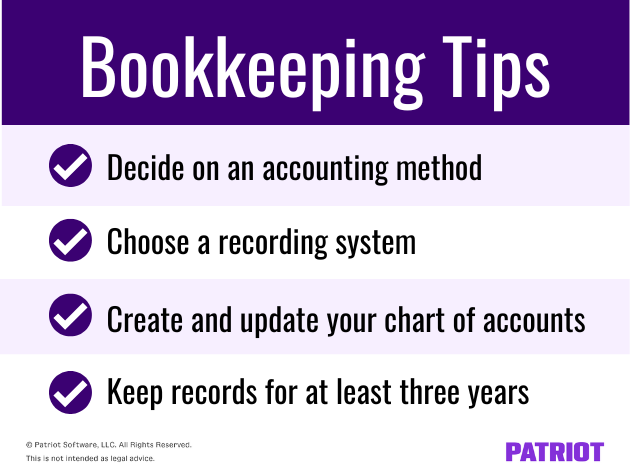Fifty-seven million U.S. workers are freelancers, representing a shift toward self-employment. But the freedom of freelancing comes with one big disclaimer: you are responsible for everything, including your accounting books. Bookkeeping for freelancers might seem overwhelming, but it’s doable with the right knowledge and tools.
Organized and accurate records can help you avoid IRS penalties and audits. So, what are your freelance bookkeeping responsibilities?
What is freelance bookkeeping?
When you are self-employed, you must record transaction information, invoice customers or clients, pay taxes, and file small business tax returns. Bookkeeping makes these tasks possible.
Bookkeeping is the process of recordkeeping and tracking your finances. As a freelancer, you are in charge of recording:
- Purchases
- Sales
- Accounts receivable
- Accounts payable
You can use bookkeeping information to generate financial statements, make business decisions, calculate your tax liability, and file returns.
Why bookkeeping for freelancers matters
Even if you use an accountant to file your taxes, bookkeeping is critical. Here are three reasons why freelance bookkeeping should be a priority.
1. It saves you money
Bookkeeping ensures your records are neat and organized. This makes it easy to either handle your own tax filings or pass them off to your accountant come tax season.
Time is money. When you have organized records, you don’t have to waste valuable time sorting through muddled records. And if you use an accountant, you can shrink your hourly bill by having everything organized ahead of time.
2. You won’t be scrambling in case of an audit
For many, audits are terrifying. What’s even more nerve-wracking is being unprepared when an audit strikes.
Audits aren’t inherently bad. If you have organized records, the process goes much more smoothly.
When you regularly record transactions, you have the documentation to back up tax deductions or credits, reported income, and more.
3. You can make educated decisions
Self-employment isn’t a free for all. The choices you make directly impact your income. If you don’t know your expenses and income, you could end up with a negative cash flow.
Bookkeeping can prevent confusion over how much you have. With bookkeeping, you know how much money you have, owe, and are owed. That way, you can make educated purchasing decisions and dial back on expenses.
Bookkeeping tips for freelancers
For effective bookkeeping, read over the tips below.

Decide on an accounting method
An accounting method determines how and when you record transactions. There are three types of accounting methods that small businesses can choose between:
- Cash-basis accounting
- Accrual accounting
- Modified cash-basis or hybrid accounting
As a freelancer, you can generally choose any of these accounting methods. However, businesses must use the accrual accounting method if they earn more than $5 million in annual gross sales or $1 million in gross receipts for inventory sales.
The cash-basis accounting method is the simplest option. You record transactions when money actually changes hands.
Under accrual accounting, you record transactions when they take place, even if you don’t immediately pay or receive money.
Hybrid accounting is a mixture of cash-basis and accrual methods. You use accrual accounts, but you only need to record transactions when cash physically changes hands. Modified cash-basis is easier to use than accrual but more intricate than cash-basis accounting.
Choose a recordkeeping system
Next, you need to decide which system you’ll use to record transactions. Generally, there are three you can choose from:
- Recording transactions by hand (i.e., a spreadsheet)
- Hiring a bookkeeper
- Using software
Recording transactions by hand is the least expensive but most time-consuming method. Hiring a bookkeeper is the most expensive but least time-consuming method. Basic accounting software is a happy medium that streamlines bookkeeping for freelancers.
Whichever system you use, be sure to track money owed to you. Otherwise, you could forget about payments for your hard work.
Create and update your chart of accounts
A chart of accounts (COA) makes it easy to list your financial accounts. COAs do exactly what their name implies: they list out all of your accounts.
Use this bookkeeping tool to manage incoming and outgoing money. You can also use a COA to help you budget.
Some accounts typically in a COA include checking, accounts receivable, inventory, and accounts payable accounts.
Keep records for at least three years
According to the IRS, you must generally keep income- and expense-supporting documents for at least three years. But, you may need to retain records longer.
The IRS says you must keep records indefinitely in certain situations.
Here’s a list of IRS rules on recordkeeping:
- 3 years if the situations below don’t apply to you
- 3 years from the date you filed your return or 2 years from when you paid the tax (whichever is later) if you file a claim for credit or refund after filing
- 7 years if you file a claim for a loss from worthless securities or bad debt deduction
- 6 years if you fail to report income, and that income is more than 25% of your gross income
- Indefinitely if you don’t file or file a fraudulent tax return
Don’t let your hard work recording transactions be in vain. Keep records in a safe location, like in a secure cloud accounting software for small business or locked filing cabinet.
Simplify your bookkeeping responsibilities with software. Use Patriot Software to manage your books, generate reports, and more. Get your free trial today!
This article is updated from its original publication date of June 27, 2019.
This is not intended as legal advice; for more information, please click here.


